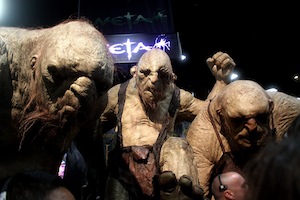
Goodbye to all that.
A particularly pathological cottage industry in east Texas is coming to an end, much to the delight of high tech entrepreneurs, and they have a low tech court case to thank for it. The federal supreme court ruled that patent trolls can’t go shopping for the most easily bamboozled judges and juries, but instead have to file law suits in the home state of the companies they’re trying to shake down.
According to a story in the Hill, the decision came in a case where Kraft – decidedly not a troll – tried to sue an Indiana-based company, TC Heartland, over water flavoring technology in a Delaware-based court…
The ruling will have broad implications for patent lawsuits, which are frequently moved to certain districts that have a track record of being favorable to patent infringement claims.
In delivering the court’s opinion, Justice Clarence Thomas wrote that much of the decision hinged on the word “resides,” which the court found to mean state of incorporation. Thomas wrote that because of this interpretation, updates to the rules by Congress did not change a 1957 Supreme Court decision that had previously found that patent suits must take place in the targeted company’s home state.
Though the TC Heartland and Kraft case focused on a disagreement between whether the case should take place in Indiana or Delaware, 40 percent of all patent suits are filed in east Texas. Ninety percent are brought in by “patent trolls,” or companies that hold patents but do not manufacture or produce anything, according to the Stanford Law Journal.
The decision hits trolls and the east Texas predatory bar that serves them, but it will also impact communities there. Big corporations, such as Samsung, have focused community relations dollars on east Texas, in the hope of building friendly relations with potential future jurors. Samsung might be able to afford to waste money on such endeavors, but few others can. The court’s ruling isn’t the end of the war against patent trolls, but it is a decisive battle.
